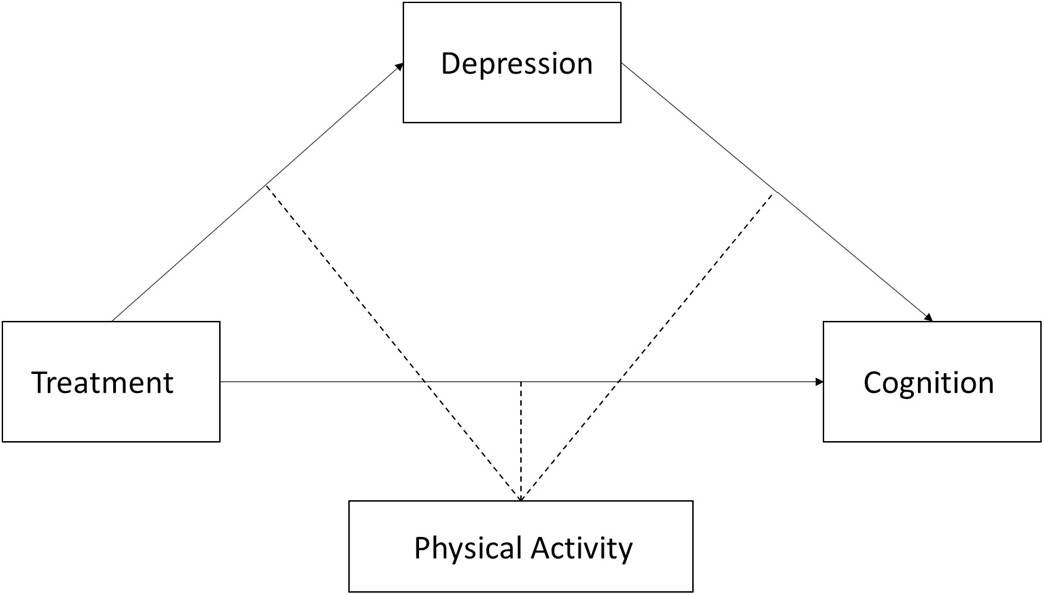16 Ιανουαρίου 2019 - Cancer treatment effects on cognition and depression: The moderating role of physical activity - The Breast
Margaret F. Bedillion, Emily B. Ansell, Gwendolyn A. Thomas
The Breast, 44 (2019), 73-80, Available online 16 January 2019

Objectives
Breast cancer survivors report significant cognitive impairments post treatment, particularly following chemotherapy. Depression may also occur post treatment and may partially mediate the effects of cancer treatment on cognition. Additionally, physical activity has been shown to mitigate treatment effects on cognition and depression. This study examined the role of depression in mediating the effects of cancer treatment on cognitive function (perceived cognitive impairment, PCI; perceived cognitive ability, PCA) in breast cancer survivors and explored the role of physical activity in moderating these effects.
Materials and methods
317 breast cancer survivors were recruited via Army of Women. Participants were 40–75 years old and had stage 0 (in situ) to IIIc breast cancer and were less than 10 years post treatment. Participants completed a demographic and treatment questionnaire, as well as the International Physical Activity Questionnaire, Functional Assessment of Cancer Therapy-Cognitive Function, and Center for Epidemiologic Studies Depression Scale.
Results
Depressive symptoms significantly contributed to cognitive function in all models. Moderate and vigorous levels of physical activity moderated breast cancer treatment effects on depression and cognition. Chemotherapy, tamoxifen, and anastrozole all demonstrated negative effects on cognition.
Conclusion
The results from this study support the importance of examining mediating factors in the effects of cancer treatment on cognition, particularly depression, following cancer treatment. Effects of treatment on cognition in breast cancer survivors are partially explained by changes in depressive symptoms, although chemotherapy may impact cognition independent of depression. Importantly, physical activity may reduce the risk of depression and cognitive impairment in breast cancer survivors.

